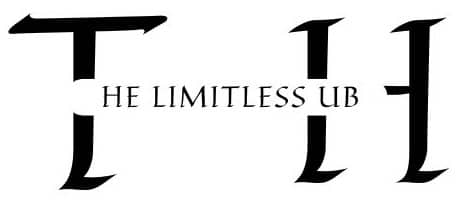Reading books about wealth building provides invaluable insights, strategies, and inspiration to help you cultivate the mindset and skills necessary for achieving financial success and long-term prosperity. The landscape of wealth-building literature is vast; for every approach to creating wealth, there are numerous books dedicated to it. Whether you aim to master budgeting, pay off debt, invest in real estate, or navigate the stock market, there’s a book that can cater to your needs.
Why Books Matter in Wealth Building
Books not only offer strategies but also provide the foundational knowledge required for financial literacy. They can demystify complex financial concepts and make them accessible to everyone, from students to professionals. Furthermore, learning from the experiences of successful individuals can inspire readers to take actionable steps toward their financial goals.
Definition of Key Terms
- Financial Literacy: The ability to understand and effectively use various financial skills, including personal finance management, investing, and budgeting.
- Passive Income: Money earned from investments or businesses where the individual is not actively involved in daily operations.
- Investment Strategy: A set of rules or guidelines that an investor follows when selecting investments to achieve specific financial goals.
10 Wealth-Building Books You Should Read
Here’s a curated list of ten books that can significantly impact your wealth-building journey:
1. The Intelligent Investor by Benjamin Graham
This classic book is widely regarded as the bible of value investing. Benjamin Graham emphasizes the importance of fundamental analysis to determine the true value of a company before investing. His principles encourage investors to buy undervalued securities and hold them for the long term, which can lead to significant financial rewards.
2. Rich Dad Poor Dad by Robert Kiyosaki
In this influential book, Kiyosaki contrasts the financial philosophies of his two “dads”: his biological father (poor dad) and his best friend’s father (rich dad). The core message is about making money work for you rather than working for money. Kiyosaki highlights the importance of financial education, passive income, and real estate investing, along with strategies to overcome debt and shift unproductive habits.
3. The Millionaire Next Door by Thomas S. Stanley and William D. Danko
Stanley and Danko reveal that most wealthy Americans do not live extravagant lifestyles but rather reside in ordinary neighborhoods. They identify seven common behaviors of wealthy individuals, such as living below their means, avoiding debt, and taking calculated risks. This book encourages readers to reassess their spending habits and priorities.
4. A Random Walk Down Wall Street by Burton Malkiel
This book serves as an excellent introduction for beginner investors. Malkiel argues against trying to beat the market through individual stock picking and advocates for long-term investing in diversified index funds. His insights provide a strong foundation for understanding market trends and investing principles.
5. One Up On Wall Street by Peter Lynch
Peter Lynch, the legendary manager of Fidelity’s Magellan Fund, shares his investment philosophy in this engaging book. He emphasizes the importance of doing thorough research and investing in companies with strong fundamentals, rather than chasing trends. Lynch’s approachable style makes complex investment concepts easy to understand.
6. The Little Book of Common Sense Investing by John Bogle
As the founder of Vanguard, Bogle champions the idea of index investing. He presents a compelling case for investing in low-cost index funds, highlighting their effectiveness in achieving market returns with minimal effort. Bogle’s straightforward approach is perfect for novice investors seeking to build wealth over time.
7. Think and Grow Rich by Napoleon Hill
Hill’s timeless classic focuses on the mindset required for success. He outlines key principles, such as setting clear goals, developing actionable plans, and maintaining a positive attitude. This book not only provides a roadmap for financial success but also emphasizes the importance of personal development.
8. The Total Money Makeover by Dave Ramsey
In this practical guide, Ramsey presents a straightforward approach to personal finance. He outlines seven steps to financial health, including budgeting, debt repayment using the snowball method, and saving for emergencies. Ramsey’s actionable advice has transformed the financial lives of countless individuals.
9. The E-Myth Revisited by Michael Gerber
Gerber challenges common entrepreneurial myths and provides insights on how to effectively run a small business. He emphasizes the need for entrepreneurs to work on their businesses, not just in them. This shift in perspective can lead to greater success and sustainability in business ventures.
10. The Psychology of Money by Morgan Housel
Housel explores the complex relationship individuals have with money, emphasizing that financial success is often influenced more by behavior than by knowledge. He discusses how early life experiences shape our attitudes toward money and highlights the importance of patience and long-term thinking in wealth building.
Deep Dive: Insights and Key Takeaways from Each Book
Each of these wealth-building books offers unique insights and strategies that can help you on your journey to financial independence. Here, we delve deeper into some key themes and takeaways from each title, along with actionable steps to implement these strategies in your own life.
1. The Intelligent Investor
Key Insight: Value investing requires a disciplined approach. Graham teaches readers to differentiate between investment and speculation, emphasizing that investing should be based on thorough analysis rather than market trends.
Action Steps:
- Research: Commit to learning about fundamental analysis. Explore resources like online courses or financial news outlets.
- Investment Plan: Create a long-term investment plan that includes asset allocation and risk tolerance assessment.
2. Rich Dad Poor Dad
Key Insight: Financial education is crucial for wealth building. Kiyosaki underscores the importance of understanding how money works, which isn’t typically taught in schools.
Action Steps:
- Learn Continuously: Engage in online courses, workshops, or financial podcasts that enhance your financial knowledge.
- Invest in Assets: Start small investments in assets like stocks or real estate to begin building passive income streams.
3. The Millionaire Next Door
Key Insight: Wealth is often built through discipline and frugality. The authors highlight that many wealthy individuals prioritize savings and wise spending over ostentation.
Action Steps:
- Budgeting: Create a budget to track income and expenses, ensuring you live below your means.
- Networking: Surround yourself with financially savvy individuals who can provide guidance and support.
4. A Random Walk Down Wall Street
Key Insight: Embrace the power of index funds. Malkiel advocates for long-term investing strategies that minimize costs and maximize returns.
Action Steps:
- Start an Investment Account: Open an investment account with a focus on low-cost index funds to grow your wealth over time.
- Regular Contributions: Set up automatic contributions to your investment account to take advantage of dollar-cost averaging.
5. One Up On Wall Street
Key Insight: Invest in what you know. Lynch encourages readers to leverage their personal experiences and knowledge in identifying promising investment opportunities.
Action Steps:
- Stock Screening: Develop a checklist for evaluating potential stocks based on your personal experiences and industry knowledge.
- Stay Informed: Keep up with industry news and trends to refine your investment choices.
6. The Little Book of Common Sense Investing
Key Insight: Compounding works best with low costs. Bogle emphasizes that investing in index funds significantly reduces fees, allowing your investments to grow more effectively over time.
Action Steps:
- Evaluate Fees: Review your current investment accounts to understand fee structures and consider switching to lower-cost options.
- Reinvest Dividends: Choose to reinvest dividends from your investments to maximize compounding.
7. Think and Grow Rich
Key Insight: The power of mindset. Hill illustrates that a positive mental attitude and clear goals are vital components of financial success.
Action Steps:
- Set SMART Goals: Create specific, measurable, achievable, relevant, and time-bound (SMART) financial goals.
- Vision Board: Develop a vision board to visualize your goals and keep your mindset focused on success.
8. The Total Money Makeover
Key Insight: The importance of an emergency fund. Ramsey stresses that financial security starts with a solid foundation, which includes having savings for unexpected expenses.
Action Steps:
- Build an Emergency Fund: Aim to save at least three to six months’ worth of living expenses in a separate account.
- Debt Snowball: Implement the debt snowball method by listing debts from smallest to largest and paying off the smallest first.
9. The E-Myth Revisited
Key Insight: Work on your business, not just in it. Gerber’s insights encourage entrepreneurs to take a step back and focus on the systems and processes that drive their businesses.
Action Steps:
- Document Processes: Create a manual for your business processes to ensure consistency and efficiency.
- Delegate: Identify tasks that can be delegated to free up your time for strategic planning and growth.
10. The Psychology of Money
Key Insight: Behavior trumps knowledge. Housel points out that understanding your emotions and behaviors related to money is crucial for making sound financial decisions.
Action Steps:
- Reflect: Take time to reflect on your financial past and identify any patterns or behaviors that may be hindering your wealth-building efforts.
- Practice Patience: Cultivate patience in your investment strategy, recognizing that wealth accumulation takes time.


